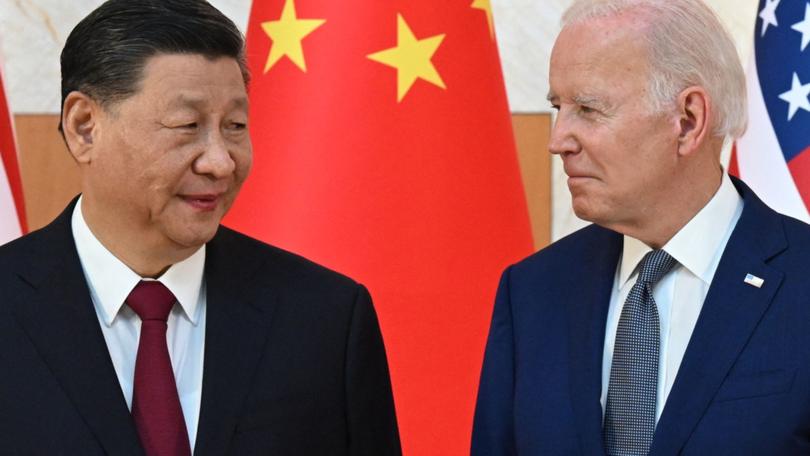US President Joe Biden wants to triple China tariffs on steel, aluminium imports
The White House has ramped up pressure on China to amend its trade practices, citing concerns of an oversupply of clean energy products subsidised by Beijing.

President Joe Biden is calling on the US Trade Representative to triple the China tariff rate on steel and aluminium imports as he makes the rounds in the key battleground state of Pennsylvania.
“Prices are unfairly low because China’s steel companies don’t need to worry about making a profit because the Chinese government subsidises them so heavily,” Biden said at the United Steelworkers headquarters in Pittsburg overnight Wednesday.
“They’re not competing, they’re cheating.”
Sign up to The Nightly's newsletters.
Get the first look at the digital newspaper, curated daily stories and breaking headlines delivered to your inbox.
By continuing you agree to our Terms and Privacy Policy.Biden’s demand to raise the current 7.5 per cent average tariff on steel and aluminium is an effort to make clear that his administration’s recent warnings about China’s trade practices are not empty threats.
“These are strategic and targeted actions that are going to protect American workers and ensure fair competition,” Biden added.
On a visit to China last week, Treasury Secretary Janet Yellen raised concern that Chinese subsidies were creating an oversupply of clean energy products, like solar panels and electric vehicles, that would outpace domestic demand. She worried that overcapacity could be dumped on global markets at artificially cheaper prices, potentially stifling competition.
Yellen said that tariffs were not off the table if those overcapacity qualms went unaddressed.
Chinese officials and state media have since denied the overcapacity accusation, saying that its abundance of supply of clean energy products is a result of “constant innovations,” not government subsidies.
As China shrugs off the overcapacity concerns, the Biden administration is doubling down on what it perceives as a threat to global trade.
“China’s policy-driven overcapacity poses a serious risk to the future of the American steel and aluminum industry,” National Economic Council director Lael Brainard said on a call with reporters on Tuesday. “China cannot export its way to recovery. China is simply too big to play by its own rules.”
Biden’s balancing act
Biden’s escalated push to hike tariffs comes as he balances election-year politics with a fragile geopolitical landscape and heightened concerns about the strength of the US economy.
On the one hand, the White House is still working to thaw relations with China after several years of near-frozen communication, in part sparked by former President Donald Trump’s initial round of China tariffs, which almost triggered a full-fledged trade war.
Biden, speaking to reporters on Wednesday, insisted that there is “no trade war” with China, despite his call to triple tariffs.
“I’m not looking for a fight with China, I’m looking for competition,” Biden reiterated during his remarks to United Steelworkers.
Tariffs can also have unintended economic ripple effects by raising US manufacturing costs that may ultimately translate to higher consumer prices. That would be an unwelcome result during a time when Biden is already in the middle of a yearslong battle to bring down stubborn inflation and prove to voters that his economic agenda is working.
A senior administration official on Tuesday rejected the notion that tariff hikes would lead to higher inflation.
“If taken these actions will not increase inflation, but they will protect American jobs and steel industry,” the official said on a call with reporters. “Residual inflation is not coming from goods, these actions will not change that.”
On the other hand, the Biden campaign is looking to maintain a hawkish China stance as he competes against Trump for blue-collar workers’ votes.
“Trump simply doesn’t get it,” Biden said Wednesday. “America is rising. We have the best economy in the world.”
In that vein of championing American economic dominance, Biden also reinforced his opposition to the proposed sale of U.S. Steel to Japan’s Nippon Steel.
“US Steel has been an iconic American company for more than a century and it should remain a totally American company,” Biden said Wednesday. “American-owned, American-operated by American union steelworkers, the best in the world. That’s going to happen, I promise you.”
CNBC
Originally published as Biden wants to triple China tariffs on steel, aluminium imports
